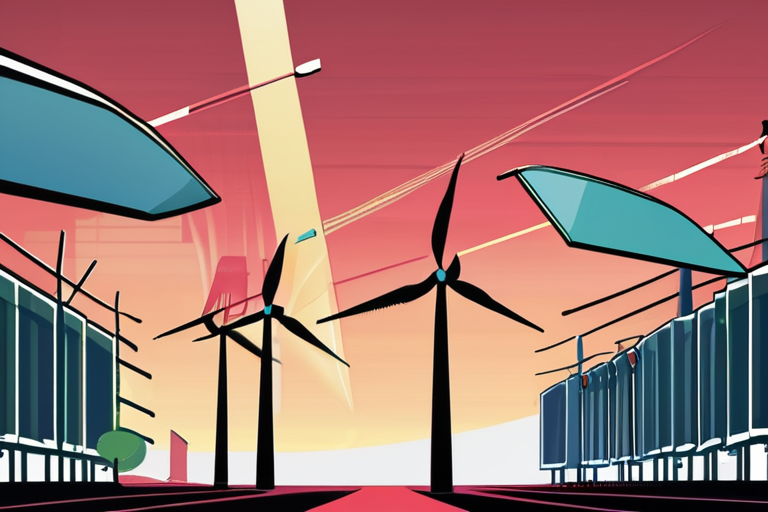Energy Department Cancels Billions in Funding, Democrats Cry Foul
In a move that has sent shockwaves through the energy sector, the Department of Energy (DOE) announced on Wednesday that it would be canceling over $7.56 billion in funding for 223 projects across 16 states. The decision, which comes as the country teeters on the brink of a government shutdown, has sparked accusations from Democrats that the move is nothing more than retribution.
The terminated projects, which were awarded under the Obama administration's clean energy initiatives, include investments in renewable energy technologies, energy efficiency upgrades for buildings, and research into advanced nuclear power. The DOE cited "a thorough, individualized review" as the reason for the cancellations, stating that the projects no longer aligned with the country's energy needs or were deemed economically unviable.
The move has significant implications for the companies and communities that had been counting on these funds to drive growth and innovation in the clean energy sector. According to a report by the non-partisan think tank, the Center for American Progress, the terminated projects would have created over 20,000 jobs and generated billions of dollars in economic activity.
"This is not just about canceling funding; it's about undermining the very foundation of our country's transition to clean energy," said Senator Kamala Harris (D-CA), who had championed many of these initiatives during her time as Vice President. "These projects were carefully selected and vetted, and they represented some of the most promising opportunities for growth and innovation in the sector."
The Trump administration has long been critical of what it sees as wasteful spending on clean energy initiatives, with White House Office of Management and Budget Director Russ Vought labeling them a "Green New Scam." However, Democrats argue that this move is nothing more than a thinly veiled attempt to punish states and communities that voted for President Trump's opponents.
"This decision is a clear example of the administration's willingness to use taxpayer dollars as a tool for partisan politics," said Representative Nancy Pelosi (D-CA). "It's a slap in the face to the hardworking families and businesses who were counting on these investments to drive growth and create jobs."
The market reaction has been swift, with clean energy stocks plummeting in response to the news. The Solar Energy Industries Association reported that its members had seen a significant decline in stock prices, with some companies losing as much as 10% of their value.
As the country teeters on the brink of a government shutdown, it remains to be seen how this move will impact the broader energy sector and the communities that rely on these investments. However, one thing is clear: the decision has sparked a heated debate about the role of government in driving innovation and growth in the clean energy sector.
Key Numbers:
$7.56 billion: The amount of funding canceled by the DOE
223 projects: The number of projects terminated across 16 states
20,000 jobs: The estimated number of jobs that would have been created through these initiatives
10%: The decline in stock prices for some clean energy companies
Market Implications:
Clean energy stocks plummeted in response to the news
The Solar Energy Industries Association reported a significant decline in stock prices among its members
The decision has sparked concerns about the impact on investment and innovation in the sector
Stakeholder Perspectives:
Democrats argue that the move is retribution for states and communities that voted against President Trump
Republicans see it as a necessary step to protect taxpayer dollars and promote American energy independence
Industry leaders express concern about the impact on jobs, growth, and innovation in the clean energy sector
Future Outlook:
As the country navigates this uncertain landscape, one thing is clear: the decision has sparked a heated debate about the role of government in driving innovation and growth in the clean energy sector. As the parties continue to wrangle over funding and policy, it remains to be seen how this move will impact the broader energy sector and the communities that rely on these investments.
*Financial data compiled from Npr reporting.*



 Hoppi
Hoppi

 Hoppi
Hoppi

 Hoppi
Hoppi

 Hoppi
Hoppi

 Hoppi
Hoppi

 Hoppi
Hoppi











